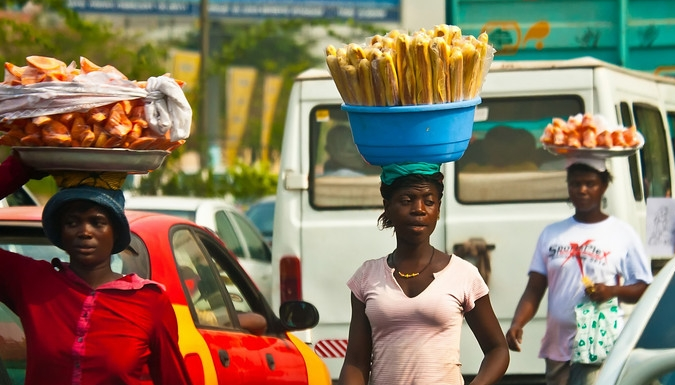
International Day of the Girl-Child. Relevance of data to measure challenges
Ghana joins the global community today, October 11, to mark the International Day of the Girl-Child.
In 2011, as a result of the youth advocacy around the world, the United Nations declared October 11 as the International Day of the Girl-Child. Its mission is “to help galvanise worldwide enthusiasm for goals to better girls’ lives, providing an opportunity for them to show leadership and reach their full potential”.
It is a day when activist groups come together under the same goal to highlight, discuss and take action to advance rights and opportunities for girls everywhere
The day is marked annually to recognise girls' rights and the unique challenges they face around the world and to address these challenges to promote their empowerment and the fulfilment of their human rights.
Developmental progress
Celebrated on the theme: “The relevance of data in tracking developmental progress,” this year’s event would be used to access how data can be collated from especially adolescent girls to help in mapping out timely interventions for programmes to promote their rights.
The observation of the event supports more opportunity for girls and increases awareness of inequality faced by girls worldwide based upon their gender.
These inequalities, also encountered by girls in Ghana, include areas such as access to education, nutrition, legal rights, medical care, protection from discrimination, violence and child marriage.
The International Day of the Girl-Child initiative began as a project of Plan International, a non-governmental organisation that operates worldwide.
The idea for the observance of an international day and celebration grew out of Plan International's ‘Because I Am a Girl’ campaign, which raises awareness of the importance of nurturing girls globally and in developing countries in particular.
At a press conference to mark the day, the Child Protection Specialist of the United Nations Children Fund (UNICEF), Mrs Emelia Allan, said out of the world’s population of seven billion, 1.1 billion were adolescent girls.
The press conference was organised by the United Nations Gender team, which is made up of the United Nations Educational, Scientific and Cultural Organisation (UNESCO), International Organisation on Migration (IOM), World Health Organisation (WHO), United Nations Children Fund (UNICEF) and with support from the United Nations Fund for Population Activities (UNFPA).

Non-existence of data
In Ghana, data on such adolescents, that is girls between the ages of 10 and 14, is almost non-existent as much of the surveys conducted, such as the Demographic and Health Survey (DHS) target respondents aged 15 to 19 years and above.
Additionally, data on such girls was non-existent because they are minors and therefore there were ethical challenges associated with collecting data from them on different aspects of their lives, attitudes and views without parental consent.
The day is therefore being used to promote girls empowerment and highlight the unique challenges they face around the world.
These challenges include child marriage, teenage pregnancy, child labour, violence, discrimination, gender inequality and limited access to education and health care.
According to the UNFPA, 13 per cent of girls in the country between the ages of 15 and 19 years have begun childbearing.
The implications of this is that these girls are likely to drop out of school and are also at risk of HIV and STIs, dying during childbirth and suffering debilitating medical conditions such as obstetric fistula.
Mrs Allan said the day would be used to focus on the importance of data in highlighting the challenges and opportunities faced by girls in their daily lives, as well as the need for a “Global Girl Data Movement” to address gender gaps in data collection, analysis, dissemination and use
She said the day would also be used to emphasise the rights of girls and the relationship between progress for girls and progress towards achieving the Sustainable Development Goals (SDGs).
She added that in order to assess, monitor and communicate the well-being and progress of girls “we need age and sex disaggregated data, as advocated for, in the Global Strategy for Women, Children and Adolescents’ Health (2016-2030)”.
Mrs Allan said: “Investment in data is necessary to be able to measure and understand the opportunities and challenges girls face, inform interventions by government and development partners and track progress towards meeting girls’ most pressing needs in Ghana.”
She said we needed this data to ensure that no girl was left behind.
